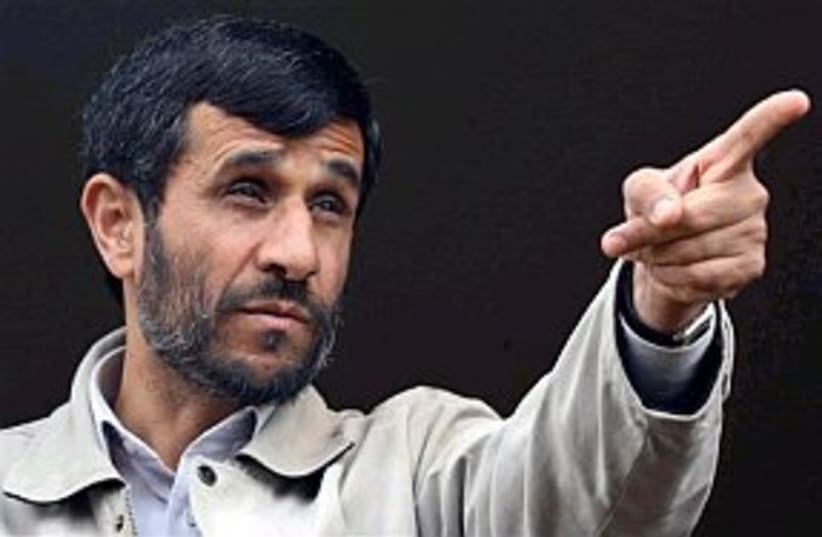| THE IRANIAN THREAT | |
| JPost.com special: news, opinion, blogs and more |
'Iran ready for nuclear negotiations'
Ahmadinejad insists the West has given in to the will of the Iranian nation.


| THE IRANIAN THREAT | |
| JPost.com special: news, opinion, blogs and more |